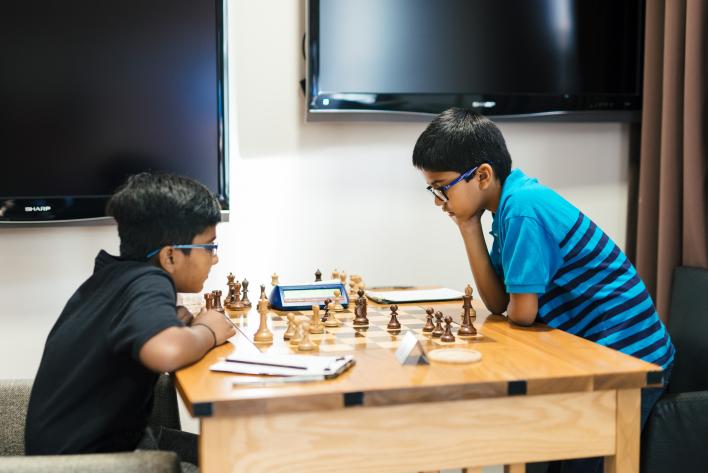
By Jana’ Thomas, Scholastic Chess Instructor
Teaching strategy can be difficult. Learning experiences that are meaningful can make it easier for students to relate to the concepts being taught. When the lesson can be applied to real life, students tend to have a greater educational take-away. To convey chess concepts like piece protection, consequences, and goal setting, I like to use real-life scenarios or storytelling.
When teaching piece protection, I might use friendship as an analogy in a relatable story like this:
There’s a kid (a pawn) walking down his street (a designated file.) Then, you see a mean kid (opponent’s piece) that wants to jump him (a capture threat), but decides not to because you’re not alone. Moral: Good friends have your back (protecting pieces.)
In addition to defense, offensive moves are extremely important in chess. I am constantly driving home the idea that one must consider consequences before making moves on the chess board, just like in life. In the previous story, protection or not, it would be wise for that little pawn to be still and not move. While teaching some of my students with behavioral challenges, I give a relatable scenario.
Consider this: You ran over to have your friend’s back (or capture an unprotected opposing piece) without knowing exactly what was going on (or considering opponent’s response) and got yourself in trouble (or captured). Moral: Think before you move.
I work with youth with several life challenges, so I feel compelled to teach perseverance and goal setting. I ask real questions like:
OK, you haven’t made all the best decisions and you’re not in the best position, are you going to give up now? Of course not; keep striving for your goal! Have you lost track of your goal? Re-focus yourself on your strategy. What was your plan? What steps should you take to achieve your goal?
I’ll have my students talk through and walk me through the steps of their plan as I wait for their ‘Ah-ha’ moment and finally ask: How will you end your story?


